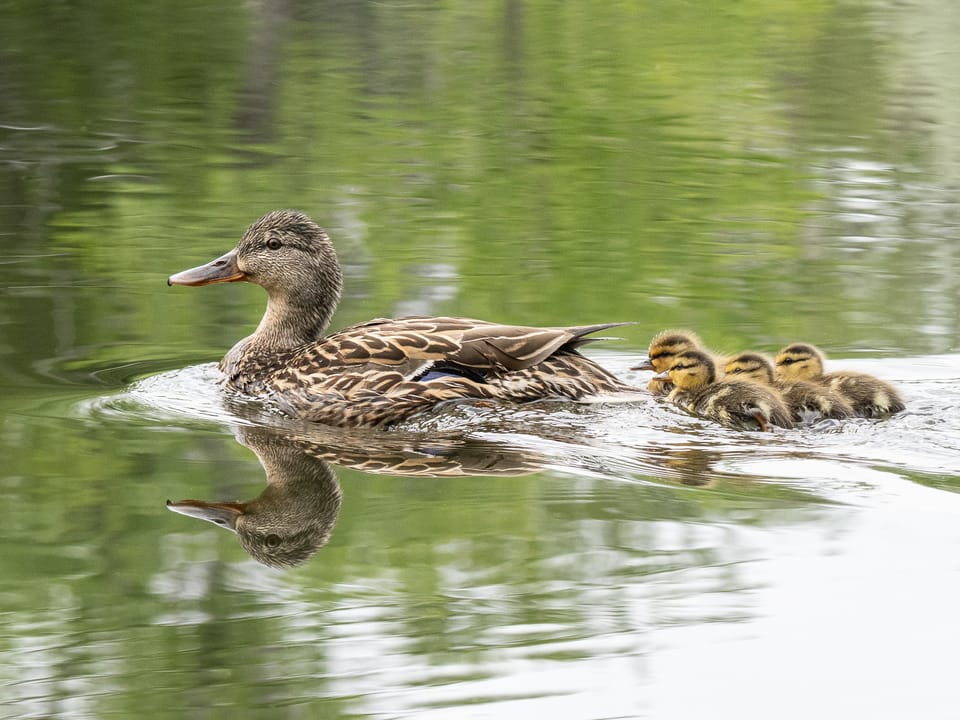EcoWest News, June 24, 2025

Welcome to EcoWest News, a weekly round-up of news and resources that you can put to use in addressing environmental issues and protecting the wild in your community.
Across the West
Wetlands in Manitoba, Saskatchewan, and British Columbia are helping swallows to succeed. [Ducks Unlimited]
The City of Saskatoon is setting up a solar farm with 5,000 solar panels on a strip of land that can’t be used for anything else. The site will also feature native grasses and flowers. [CBC]
The Saskatchewan government has decided to extend the life of all its coal power plants, violating federal regulations meant to reduce carbon dioxide emissions. The cost could be significant. [CBC]
Wildfire plays a significant role in BC’s water quality as it releases ash, soil particles, and chemicals into the environment. “As wildfire frequency and intensity continue to rise in BC, we need to better understand the cascading effects of fire across systems, and to integrate this knowledge into land, water and climate resilience planning.” [UBC]
Watch Trouble in the Headwaters, a 25-minute documentary that reveals how loss of forest cover in BC’s Kettle River basin triggered a cycle of flooding, landslides, and drought. [The Narwhal]
Across Canada
67% of Canadians favour clean energy over conventional fossil fuels and there’s strong support for government-led climate action. [Clean Energy Canada]
Around the World
Urban noise pollution can have a huge impact on health and quality of life, but engineers have tools to limit it. [8-min video, Wall Street Journal]
Des Moines, Iowa, residents have been banned from watering their lawns – not because of drought but because of excessively high levels of nitrates in the water from agricultural fertilizer. [Inside Climate News]
Keeping the growing number of EV batteries out of landfills and recovering the valuable minerals they contain is essential but may prove difficult without government regulations providing incentives and structure. [CBC]
Housing
The current drive to build more housing and infrastructure is a once-in-a-lifetime opportunity to prioritize the use of lower-carbon building materials, including lower-carbon concrete [Pembina] and bio-based building materials (grain straw, corn stover, husks/shells) [RMI].
From awnings to blinds and shutters, keeping the heat out is the first step in keeping buildings cool. [Lloyd Alter]
Biodiversity
“We sneer at bogs, we tease them and drain them, scrape at them and pillage them, but give them back their waters and they care not just for the creatures that live on them, but those much further afield.” [The Guardian]
Three years ago, a Spanish lagoon was granted personhood, but not much has changed. Judges and politicians try to balance competing interests and it’s a call-to-arms for those who want to protect nature. [bioGraphic]
Trees respond to the summer solstice, the longest day of the year, with changes to their growth and reproductive strategies. [The Guardian]
Making a Difference
“If you raise the price of trash, people are going to find ways to not put as much out at the curb.” People will reduce, recycle, or compost rather than spend more money for an extra bag. [Grist]
Replacing single-use food takeout containers with renewables is a good fit when consumers, such as students and staff, return to the same place over and over again. [CBC]
A French app, under the slogan “own less, have more”, connects people who have things they don’t need (such as an ice-cream maker or a drill) with people who might want to borrow or rent them. [The Guardian]
DIY
Insects are in trouble. Here are 25 easy, effective ways to protect them, from building a butterfly bank to avoiding toxic de-flea potions. [The Guardian]
Photo credit: https://www.flickr.com/photos/apmckinlay/54605413357
EcoFriendly West informs and encourages initiatives that support Western Canada’s natural environment through its online publication and the Nature Companion website/app. Like us on Facebook, follow us on BlueSky, X, and Mastodon, or subscribe by email.

Member discussion